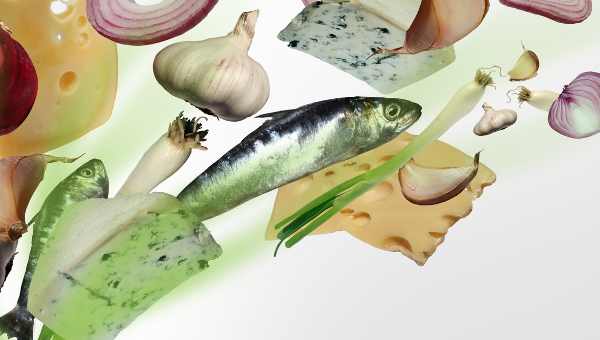Do you find that you’re doing everything right, so why is your belly bloating? You’re eating healthy, working out, sleeping well, and the question still remains? What are the invisible culprits? How do I avoid them? You need to know what they are.
Top 5 reasons your belly is bloating
1. Too quickly changing your diet
In an effort to drop the pounds you change it up and start eating more veggies – tons of veggies. Your body needs time to adjust. Many veggies have tough cell walls that are difficult for your body to break down. This leaves you gassy and bloated. The worst culprits are cruciferous veggies (broccoli, brussels sprouts, cauliflower).
Solution – Introduce new or raw foods slowly. Your body needs time to adjust. Try steaming them, as this helps to break them down a bit making them easier to digest.
2 . Stress eating / eating in a hurry
(OK – so these are two, but they affect your tummy in a similar way!) Eating when stressed or in a hurry doesn’t give your body a chance to digest your food properly. So there it sits, in your belly, fermenting and causing gas (which bloats you). I know life is busy and can be stressful (ugh), but slowing down and being in a mindful and relaxed state when eating does wonders for digestion.
3. Improper food combining

Now this is counter-intuitive to how we generally eat. We plate up things like chicken and rice, a turkey sandwich, steak and potatoes, pasta and meat sauce – you get the idea. Eating animal proteins alongside starches seriously messes with our digestion, leading to bloating and discomfort. Starches and animal proteins require different enzymes to break down, and for most people, this process does not go smoothly. Starches only take a couple of hours to digest whereas meat takes 4-6+ hours. So it just sits in your stomach heavy, creating gas, bloating, and indigestion.
Solution – Eat protein separate from starch where possible. If you find that difficult, eat your starch first. For some people, this can be extremely helpful.
4. Food sensitivities
Did you know that when you crave a particular food it sometimes means you have a sensitivity to that food? Aside from getting testing done, the easiest way to find out if you’re sensitive to a food is to eliminate it from your diet entirely for at least two weeks. Then slowly re-introduce that food and see if your belly bloats. Some of the most common offenders would be wheat (and gluten – the protein found in wheat), corn, soy and dairy.
5. Drinking water before you eat to fill up your belly
Not the best idea. Drinking during meals dilutes stomach acids, making it difficult to digest food. Particularly cold fluids, as they essentially “freeze” your digestive glands – a double whammy!

Solution – avoid drinking anything, including water for 30 minutes before and 30 minutes after your meal. This keeps your digestive enzymes concentrated and really helps break down your food for you. This not only helps to reduce gas and bloating, but allows your body to absorb nutrients better too. Yay for better nutrition!
But what about my wine? Sip your wine if you must, but remember, wine is a depressant for the central nervous system and will slow down or hinder your digestive process.
Bonus tips
- Take a good probiotic! Probiotics are the good bacteria that populate your gut. In a perfect world our colons should have 80% healthy bacteria to 20% unhealthy bacteria. The truth is, for most people, it’s the reverse. Taking a good probiotic helps re-establish healthy gut flora improving digestion and seriously reducing belly bloating. I know so many people who have said probiotics have been life-changing for them! Keep in mind that choosing a probiotic can be very difficult. Not every probiotic is equal. We are proud to partner with Seroyal brands here at Vitalife, offering an array of products for each specific need. Probiotics are live bacterial cells that generally require refrigeration to stay alive and maintain effectiveness. Choose one with multiple strains of bacteria.
- Clean your colon! Always our first suggestion when looking to decrease bloating. Positive body changes from colon cleansing include improved digestion, reduced bloating and acid reflux, a positive shift in mood, better bowel function, increased immune function, and better absorption of nutrients. You may quickly notice a decrease in food sensitivities, have better control over weight management, and your skin will be brighter and clearer.
- Chat with your doctor about your liver health. Checking to see if your liver is overworked could help. If it is, this answers a lot of questions. Overworked liver can increase belly size, no matter what you try to do to change it.
Reduced belly bloating
So there you have it – 5 helpful tips (and 2 bonus tips) for better digestion and reduced belly bloating. It’s tough when you’re eating healthy and feel like you’re doing everything right, and still can’t seem to get rid of that belly bloat..
“You are what you eat” – a true statement from our perspective. So, pay attention to what goes in!



